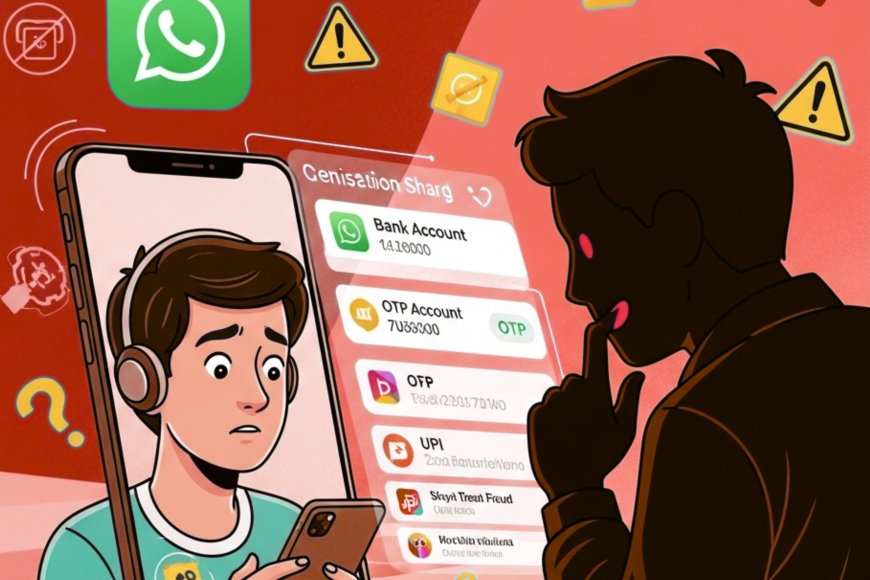Rising WhatsApp Screen Mirroring Fraud in India: How Scammers Trick Users and What You Can Do to Stay Safe
WhatsApp Screen Mirroring Fraud is rising across India, tricking users into sharing sensitive details with scammers. OneCard warns that awareness, safe practices, and reporting suspicious activity are key to protecting money and identity.

Digital scams are becoming more common in India, and a new one called WhatsApp Screen Mirroring Fraud has started to worry experts. Recently, OneCard issued a warning to customers about this scam. It can be easy to avoid, but the actual difficulty is that a lot of people don't know how it works. If you fall for this fraud, you could lose money, control of your bank accounts, and potentially your identity.
In this scam, scammers mislead individuals into using WhatsApp to share their screens. Once turned on, scammers can see everything that happens on the victim's phone. This includes confidential information like OTPs, banking activity, UPI PINs, personal chats, and even identity documents. They can take over accounts, move money, or even steal someone's identity if they have this access.
The way this fraud works
A phone call or message is usually the way to the scam starts. Scammers pretend to be people who work for banks, financial companies, or service providers. They say there is a problem with the victim's account and get them to turn on screen sharing or screen mirroring on WhatsApp.
The risk starts as soon as screen sharing turns on. Scammers can see the victim's phone in real time. This lets them get OTPs, UPI PINs, passwords, bank transactions, and even ID documents. In certain circumstances, they also install unsafe apps or keyloggers, which record everything typed on the phone without the user knowing. With this access, scammers can take over accounts, transfer money, and even pretend to be the victim before they know what has happened.
Why Security Isn't Enough by Itself
Screen overlays, session timeouts, and restricting screen recordings are just some of the security measures that Indian banking apps already offer. But scammers don't necessarily go after technology, they go after people's trust. They get people to give them access by making them feel scared and rushed. This clearly proves that scammers can still win even with the most modern security solutions.
Safe Practices
- Verify the Caller’s Identity: Always confirm the identity of a caller claiming to be from a bank or financial service before sharing any information.
- Share Screens Only When Necessary: Enable screen-sharing only if absolutely required, and only with people you personally trust.
- Disable Unknown App Installations: Turn off the option to install apps from unknown sources to prevent malicious apps from entering your device.
- Report Suspicious Activity: Immediately report any suspicious calls or numbers at cybercrime.gov.in or by dialling 1930.
Risky Mistakes to Avoid
- Don’t Answer Unknown Calls: Never pick up calls from suspicious or unknown numbers, as they could be scammers.
- Don’t Do Transactions During Screen Sharing: Avoid making any financial transactions while your screen is being shared.
- Don’t Rush Under Pressure: If someone pressures you to act quickly, stay calm. Don’t rush or panic—scammers use urgency to trap victims.
Cybercrime experts stress that awareness is the strongest defense. Families should especially educate elderly members, who are often targeted by scammers. If you ever feel suspicious, stop immediately and verify through official channels. If you do become a victim, contact your bank and cybercrime helpline 1930 right away. Staying alert, questioning sudden requests, and not sharing your screen unnecessarily can help protect you from this fast-growing digital fraud.
Information referenced in this article is from The 420







